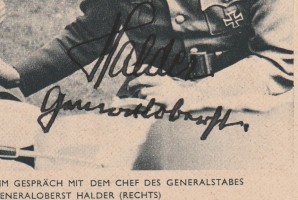
Epenstein acquired the minor title of Ritter (knight) von Epenstein through service and donations to the Crown. Göring's mother became Epenstein's mistress around this time and remained so for some fifteen years. Epenstein provided the Göring family, who were surviving on Heinrich's pension, first with a family home in Berlin-Friedenau, and then a small castle called Veldenstein, near Nuremberg. Göring's godfather was Hermann Epenstein, a wealthy Jewish physician and businessman his father had met in Africa. She left the six-week-old baby with a friend in Bavaria and did not see the child again for three years, when she and Heinrich returned to Germany. At the time that Göring was born, his father was serving as consul general in Haiti, and his mother had returned home briefly to give birth. Göring's elder siblings were Karl, Olga, and Paula his younger brother was Albert. Göring was the fourth of five children by Heinrich's second wife, Franziska Tiefenbrunn (1859–15 July 1943), a Bavarian peasant. Heinrich had three children from a previous marriage. His father, Heinrich Ernst Göring (31 October 1839 – 7 December 1913), a former cavalry officer, had been the first governor-general of German South West Africa (modern-day Namibia). Göring was born on 12 January 1893 at the Marienbad Sanatorium in Rosenheim, Bavaria. He was sentenced to death by hanging but committed suicide by ingesting cyanide mere hours before the sentence was to be carried out.Įarly life and education Göring in 1907, at age 14 After the war, Göring was convicted of conspiracy, crimes against peace, war crimes, and crimes against humanity at the Nuremberg trials in 1946. Considering his request an act of treason, Hitler removed Göring from all his positions, expelled him from the party, and ordered his arrest. Informed on 22 April 1945 that Hitler intended to commit suicide, Göring sent a telegram to Hitler requesting his permission to assume leadership of the Reich. Around that time, Göring increasingly withdrew from military and political affairs to devote his attention to collecting property and artwork, much of which was stolen from Jewish victims of the Holocaust. As the Second World War progressed, Göring's standing with Hitler and with the German public declined after the Luftwaffe proved incapable of preventing the Allied bombing of Germany's cities and resupplying surrounded Axis forces in Stalingrad. After the Fall of France in 1940, he was bestowed the specially created rank of Reichsmarschall, which gave him seniority over all officers in Germany's armed forces.īy 1941, Göring was at the peak of his power and influence. In September 1939, Hitler gave a speech to the Reichstag designating him as his successor. Upon being named Plenipotentiary of the Four Year Plan in 1936, Göring was entrusted with the task of mobilizing all sectors of the economy for war, an assignment which brought numerous government agencies under his control. He was appointed commander-in-chief of the Luftwaffe (air force), a position he held until the final days of the regime.

One of his first acts as a cabinet minister was to oversee the creation of the Gestapo, which he ceded to Heinrich Himmler in 1934.įollowing the establishment of the Nazi state, Göring amassed power and political capital to become the second most powerful man in Germany. After Hitler became Chancellor of Germany in 1933, Göring was named as minister without portfolio in the new government. While receiving treatment for his injuries, he developed an addiction to morphine which persisted until the last year of his life. An early member of the Nazi Party, Göring was among those wounded in Adolf Hitler's failed Beer Hall Putsch in 1923. He was the last commander of Jagdgeschwader 1 (JG I), the fighter wing once led by Manfred von Richthofen. He was one of the most powerful figures in the Nazi Party, which ruled Germany from 1933 to 1945.Ī veteran World War I fighter pilot ace, Göring was a recipient of the Pour le Mérite ("The Blue Max").

Hermann Wilhelm Göring (or Goering German: i 12 January 1893 – 15 October 1946) was a German politician, military leader, and convicted war criminal. Reich Plenipotentiary of the Four Year Plan ( President of the East German People's Chamber in 1949)Ĭhairman of the Council of Ministers for Defense of the Reich ( President of the West German Bundestag in 1949)


 0 kommentar(er)
0 kommentar(er)
